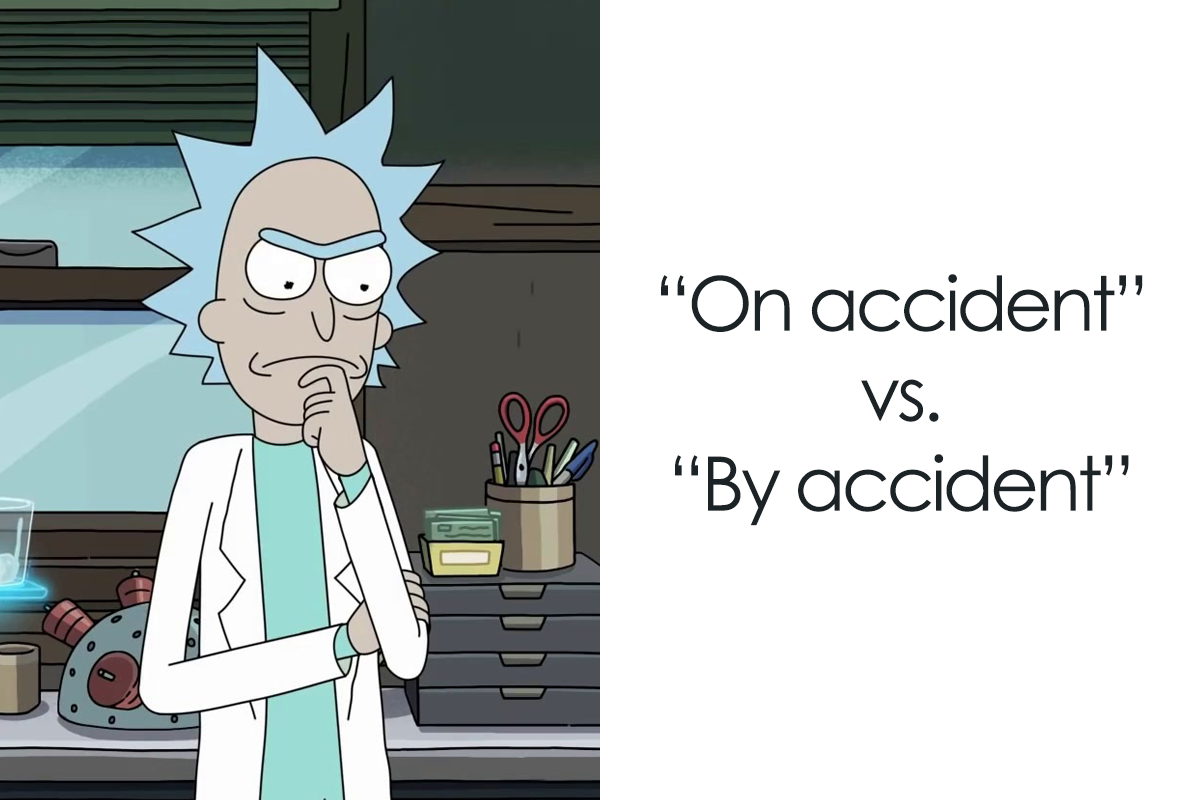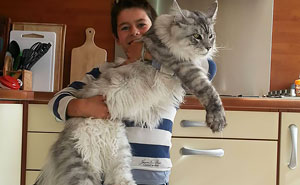Nothing beats a good phrase or an idiom used in a timely fashion. They are easy to memorize and even easier to say. They allow us to communicate a clear message in a matter of a few words. In layman's terms, phrases and idioms keep the conversation going. However, there are some phrases people say wrong and don’t even know it. Common phrases people say wrong can soon turn friendly banter into an argument. A simple spelling mistake or a replacement of a word can quickly change the meaning of many common sayings.
Nobody likes to make a fool of themselves, especially when it comes to using phrases and idioms. To the rescue come grammar checkers, and commonly misspoken phrases are their bread and butter. They are always ready with a comeback to your mistake and will correct the saying people get wrong. However, the system is not ideal. Autocorrect has its flaws, too, and may not always work in your favor. While autocorrect might save the text you write online, only general knowledge will prevent you from saying a phrase in the wrong way in person.
Thus, if you ever have doubts, there is nothing wrong with looking up a common phrase or two and seeing how they are actually spelled. Finding out how commonly misused phrases are actually used and spelled can prevent awkward situations. Take a look at the list below for some of the phrases that are often used but rarely correctly. Comment down below if you ever had an argument that arose from a mistakenly used phrase!
This post may include affiliate links.
"I could care less" vs. "I couldn’t care less."
It is implied that you care about a subject when you say that “I could care less." "I couldn't care less" usually means that you have no interest in the subject at all.
Correct phrase: "I couldn’t care less."
"On accident" vs. "By accident."
Something can be done on purpose but not on accident. Thus, that means “by accident” is not only correct, but also means you did it accidentally.
Correct phrase: "By accident."
"Could of, should of" vs. "Could have, should have."
All three of these modal verbs — could have, would have, and should have — are frequently uttered aloud as contractions. When spoken aloud, the word "could've" may be misheard as "could of."
Correct phrase: "Could have, should have."
A quite senior manager in a finance department of a global bank once used 'should of' in an email to me. The effort it took not to correct this was considerable.
"Statue of limitations" vs. "Statute of limitations."
If you can't tell the difference between these two terms, you can always watch a Seinfeld episode to learn the correct form of the phrase. It’s not a “statue of limitations”; there isn’t a statue standing somewhere in the world of “limitation." It’s “Statute of limitations,” a time limit before the crime is no longer judged.
Correct phrase: "Statute of limitations."
"Expresso" vs. "Espresso."
Those of you who work in coffee shops have no doubt encountered customers who request an expresso. There is no such beverage. An espresso is the beverage you're attempting to order.
Correct phrase: "Espresso."
"Supposably" vs. "Supposedly."
The word supposably, which means "as may be thought or imagined," has its own distinct history despite the common misconception that it is just an incorrect version of the word supposedly. Supposedly means "according to what is generally assumed or believed," and people occasionally confuse the two phrases because of their closeness.
Correct phrase: "Supposedly."
"Paper view" vs. "Pay-per-view."
“Paper view” is just plain malarky, a spelling mistake of “pay-per-view.” “Pay-per-view” describes a television service that a person can pay for and provides access to more TV content.
Correct phrase: "Pay-per-view."
“Peaked my interest” vs. "Piqued my interest."
If there is a point that got your attention, the more correct term would be “piqued my interests” because it just caused you to develop interest. If you were to use “peaked my interest,” it means that you have reached the highest point of interest there is to reach while talking about this point and are ready to move on. They sound the same but have totally different meanings when you look at the whole context of these words.
Correct phrase: "Piqued my interest."
As in another entry, "piqued" and "peaked" are usually pronounced EXACTLY THE SAME WAY, and this is a list that is supposed to be "phrases that people SAY wrong".
"Momento" vs. "Memento."
Momento is a misspelling. A memento, on the other hand, is something that we hold close to ourselves, like a keepsake.
Correct phrase: "Memento."
"Irregardless" vs. "Regardless."
A double negative doesn’t make a word. Regardless is already a form of negativity. By adding the additional “ir” to the word, you make a double negative, which removes the impact of the word. The next time you hear a person using this phrase, make sure to double-check what they meant.
Correct phrase: "Regardless."
"Conversating" vs. "Conversing."
You can create a new verb by eliminating the "ion" and adding a "ng," correct? False. The correct term is conversing, however, many people instead use the informal term conversating.
Correct phrase: "Conversing."
I'm pretty sure no one above the age of 5 years old would use the word "conversating".
"Extract revenge" vs. "Exact revenge."
Something is taken out of another thing when it is extracted. You are dishing it out when you exact anything onto something. Therefore, getting even with someone would mean getting that person's retribution. Retaliating against them entails exacting your vengeance on them.
Correct phrase: "Exact revenge."
"Taken for granite" vs. "Taken for granted."
It's difficult to comprehend how the phrase "taken for granite" came to be used, but it did. There may have been a preconceived belief that anything inscribed in stone is unquestionably true. It is "taken for granted" though, unless you are a statue of a US president.
Correct phrase: “Taken for granted.”
I dunno, I think I've been "taken for granite" a few times in my life. I assure you, no one takes me for granted though.
"One in the same" vs. "One and the same."
When you sit down and give it some serious thought, the phrase "one in the same" has no true meaning. "One and the same" refers to two items that are identical.
Correct phrase: "One and the same."
“Beckon call” vs. "Beck and call."
Another victim of mispronouncing. To be labeled as “beck and call” means that a person can call you and, without a beat passing, get your answer and actions. This phrase is often used by entitled people who see others as lesser.
Correct phrase: "Beck and call."
"For all intensive purposes" vs. "For all intents and purposes."
Your passion for your goal may be very strong, but that doesn't make the phrase accurate. The terms "for" and "with" are frequently switched, which is another improper usage of the expression. The appropriate expression conveys that you are considering all scenarios and potential outcomes.
Correct phrase: "For all intents and purposes."
"Aks" vs. "Ask."
For things, you don't aks or axe. You ask for them. It's not crystal clear when the letters ‘s' and ‘k’ switched places, but it's not uncommon for people to misplace them.
Correct phrase: "Ask."
"Nip it in the bu*t" vs. "Nip it in the bud."
Nipping anything in the bud refers to ending it before it has a chance to develop or begin. Biting something's backside is referred to as "nipping it in the bu*t."
Correct phrase: “Nip it in the bud.”
"Waiting on" vs. "Waiting for."
When you are waiting for someone, that means you are waiting for that person. It doesn’t mean you are waiting on them by sitting on that person, but you are waiting for a person to meet up with you or send you a message. In a restaurant, you wait for a table to become available, and are not (hopefully) waiting on the table.
Correct phrase: "Waiting for."
Waiting on is a hospitality reference " I waited on tables 1 through 8"
"Mute point" vs. "Moot point."
These are two words that are so overused, it’s hard to tell the difference between them, so you might have also made this mistake once or twice. A mute point is probably a point that is, well, quiet. A moot point is the more correct term to use. It defines a contentious question as one that is subject to debate. It also describes an irrelevant question as one that is not relevant.
Correct phrase: "Moot point."
"He did good" vs. "He did well."
The words good and well are used interchangeably so frequently that some people mistakenly believe they are synonyms. If you are ever confused on which one to use at a proper time, think about which one you need more. If it’s an adverb you need, use well — if it’s an adjective you need, use good. Simple as that.
Correct phrase: "He did well."
“Sneak peak” vs. "Sneak peek."
A spelling mistake that makes a sneaky phrase into a grammar mess. When you look at something with hidden intentions, you “sneak a peek”, but when you say that you “sneak a peak” you are basically saying you are sneaking to the top of a mountain peak and doing who knows what.
Correct phrase: "Sneak peek."
Seeing as "peak" and "peek" are pronounced EXACTLY THE SAME WAY, and this is a list that is supposed to be "phrases that people SAY wrong", I call foul.
“Worse-case scenario" vs. "Worst-case scenario."
It might make sense for you to be ready for a "worse-case scenario" — a situation in which things turn out to be far worse than they are right now. Instead, you should plan for a "worst-case scenario," which is the precise term for a situation when things go from bad to worse.
Correct phrase: "Worst-case scenario."
"Day in age" vs. "Day and age."
In this day and age, “day in age” is used and misused every day because of a small grammar mistake. When talking about the present, the more correct term is “day and age” and is usually used after “in this." By saying “day in age” you’re talking about a day in an age, not today, but somewhere in the past.
Correct phrase: "Day and age."
"Baited breath" vs. "Bated breath."
Shakespeare's The Merchant of Venice is where the phrase "bated breath" originally appeared. The word "bated" is an abbreviation for the verb "abated," which means "to diminish in harshness or amount." Therefore, to have "bated breath" means to hold your breath; conversely, to have "baited breath" means to have bait in your breath, which would likely smell unpleasant.
Correct phrase: "Bated breath."
I mean, you COULD have "baited" breathe. Been near a few people that seemed to. 🤢
"Case and point" vs. "Case in point."
"Case in point" refers to an illustration of the argument being made. The version with "and" separates them into two distinct concepts, which is not at all helpful to your case. For the record, "cases in point" is plural.
Correct phrase: "Case in point."
"Wreck havoc" vs. "Wreak havoc."
The definition of "wreck" is to destroy, which is the exact opposite of the intent of this expression. It's a lot of fun to "wreak havoc" by causing mayhem, anarchy, and damage all over.
Correct phrase: "Wreak havoc."
"Piece of mind" vs. "Peace of mind."
This appears to have developed as a result of the true terms "a piece of my mind" and "peace of mind" being mixed together to become "piece of mind." The concept of "peace of mind" refers to serenity, which is desirable. "Piece of mind" sounds like a lump of someone's brain, which is certainly less desirable.
Correct phrase: "Peace of mind."
"Wet your appetite" vs. "Whet your appetite."
To whet someone's appetite implies to tempt or pique their curiosity. When showing a person the car you're trying to sell, you "whet the appetite" of the person. The phrase is sometimes misheard as "wet your appetite," which makes sense. The inside of your mouth does become moist when you are hungry and smell something delectable. The correct verb, however, is "whet," an archaic term that means "to sharpen."
Correct phrase: "Whet your appetite."
I don't actually know anyone personally who pronounced wet and whet the same... There's more emphasis on the h in whet...
"Slight of hand" vs. "Sleight of hand."
This one is just a matter of the term "sleight" being spelled incorrectly frequently. You're not alone if you think the phrase "slight of hand" indicates making a tiny movement in the direction of deception. However, the definition of "sleight" in the dictionary is "the use of dexterity or cunning, especially so as to deceive," so that settles it.
Correct phrase: "Sleight of hand."
"Chock it up" vs. "Chalk it up."
It’s natural that this statement causes misunderstandings as "chock" and "chalk" are two different nouns. Vegetables can chock the fridge up, but when it comes to giving an explanation for why something occurred, "chalk" is the word to choose.
Correct phrase: "Chalk it up."
"Old timer’s disease" vs. "Alzheimer’s Disease."
This one is kind of ridiculous. Many make this error when younger. As we age and get true knowledge of what Alzheimer's Disease is, we are able to pronounce the term appropriately.
Correct phrase: "Alzheimer’s Disease."
"Deep-Seeded" vs. "Deep-Seated."
In contrast to what the latter word implies, this statement means that something is firmly anchored in place.
Correct phrase: "Deep-Seated."
"Free reign" vs. "Free rein."
The term "free rein" derives from the practice of holding a horse's reins loosely to allow for its unlimited movement and indicates "unrestricted liberty of action or judgment." Even though the phrase "free reign" indicates that someone can rule however they choose, it's incorrect.
Correct phrase: "Free rein."
"Please precede" vs. "Please proceed."
The terms proceed and precede both refer to forward motion. But while one precede means to do something before anything happens, proceed is used when you want to continue something. In a meeting, when stopped, you’ll be asked to “please proceed."
Correct phrase: "Please proceed."
"Pre-Madonna" vs. "Prima donna."
While Madonna is pretty famous, there is no phrase about her. “Pre-Madonna” basically means before Madonna, while “prima donna” describes someone who is self-centered and egoistic. So while Madonna can sometimes be a “prima donna,” she isn’t so important that we look at the music world as before and after Madonna.
Correct phrase: "Prima donna."
Child-me thought it was "pre-Madonna" because Madonna is a diva and divas are egotistical. So if you were a pre-Madonna it meant that you were a mini diva. It's like when you do a math problem the wrong way but still get the same answer
"First come, first serve" vs. "First come, first served."
This phrase comes from the middle ages. It’s that old. In those times, if you were to come with a bag full of grain and want to get some flour, the first one who came would be the first who would get served. Simple shortening of a phrase that suits almost every service in our economy. If you are the first in the list, you will get first served.
Correct phrase: "First come, first served."
"Tow the line" vs. "Toe the line."
Choose "toe the line" at all times. No one is sure where this expression came from, perhaps from athletes placing their toes on their markers before a race. Toe the line refers to accepting or adhering to a rule or standard, such as using "toe" rather than "tow."
Correct phrase: "Toe the line."
It comes from prison. When the guards would tell prisoners to step forward. There was a line in the yard. The prisoners had to put their toes on the line. It's a rank and file term.
"All and all" vs. "All in all."
Another phrase fell victim to the use of an incorrect word in the wrong place. By replacing the “in” in “all in all” with an “and,” you change the phrase. “All in all” is perfect for summarizing a story and telling the moral of it, while “all and all” could, at best, mean that you are putting two things together.
Correct phrase: "All in all."
"Scotch free" and "Scott free" vs. "Scot free."
A triple feature of the same phrase. There is no doubt that the real term is “scot free” and other versions of this term are just ways to prove the origin of this phrase. Nothing comes free in this world, not even scotch or a Scott.
Correct phrase: "Scot free."
Let's talk about the historical background to this slang term, shall we?
"I made a complete 360 degree change in my life" vs. "I made a complete 180 degree change in my life."
People sometimes use the phrase "made a total 360 degree change in my life" to suggest that they have completely altered from who they formerly were. Going 360 degrees, on the other hand, signifies that you have come full circle and are back where you were before. Consequently, you wouldn't have changed at all. The majority of people are attempting to say that they are the exact opposite, which would be a 180 degree change.
Correct phrase: "I made a complete 180 degree change in my life."
"Biting my time" vs. "Biding my time."
You can’t really bite time. It doesn’t have a body or other physical form that you can just bite with your teeth. If you are sitting around and waiting for someone to arrive, you are “biding your time,” not biting it.
Correct phrase: "Biding my time."
"Copywrite" vs. "Copyright."
One is an activity involving writing and advertising, the other is legal jargon used to protect works that copywriting could provide. If you are trying to talk about a brand, a picture or another work of art, you most likely mean “copyright."
Correct phrase: "Copyright."
And the correct phrase in advertising and branding is 'copywrite.' Context matters.
"All for not" vs. All for naught."
An expression that implies "all for nothing" is "all for naught." All for nothing is frequently confused with the homophone for nothing. Due to the similarity between "not" and "nothing," individuals occasionally write "all for not." Occasionally, writers spell "naught" as "nought" instead.
Correct phrase: "All for naught."
"A whole nother" vs. "A whole other."
This phrase is popular on the wider net we call the internet. “A whole other” is used to describe something related to another thing. For example, while Japan is a power on the Asian continent, the USA is a whole other kind of power, a superpower of the world. This phrase is used to talk about two different things that may be on two different sides of the same scale.
Correct phrase: "A whole other."
colloquialism or informal. From Merriam-Webster: Nother is a real word which functions similarly to other and another, and its use traces back to the early 14th century. In the late 19th century it became more common to see the word nother paired with whole, constructing the phrase a whole nother. The reason this is often seen as an error today is because this phrase is used almost exclusively in dialogue or to represent informal speech in writing.
"Shoe-in" vs. "Shoo-in."
A "shoo-in" is a straightforward victor, and it results from racehorses being shooed to make them run more quickly. This term is frequently misspelled as "shoe-in."
Correct term: "Shoo-in."
"Tough road to hoe" vs. "Tough row to hoe."
Many individuals actually mean "a tough row to hoe" when they say "a tough road to hoe" (i.e., a difficult task). "A tough road to hoe" almost seems acceptable, but upon closer examination, it is complete nonsense. A road is subjected to heavy foot traffic in addition to damage from bicycles and vehicles. Only a crazy person would want to hoe a road.
Correct phrase: "Tough row to hoe."
Highly policed areas are tough roads to ho... ok, I'll see myself out now
"Play it by year" vs. "Play it by ear."
Sometimes rules are meant to be followed not step-by-step, but by following something without any special preparations. If you improvise and act in the moment, you are usually “playing it by ear."
Correct phrase: "Play it by ear."
"The ghost is clear" vs. "The coast is clear."
“The ghost is clear” phrase is like a literal ghost — it isn’t real, it is the result of miscommunication. The true phrase is “the coast is clear,” which means that there are no obstacles of any kind in the way.
Correct phrase: "The coast is clear."
"Quote on quote" vs. "Quote, unquote."
It’s important to distinguish the words of another person and yours. You don’t want to plagiarize somebody else. So the next time you say another person's words, make sure to say “quote, unquote,” not “quote on quote” because then you are saying a quote on a quote, which makes no sense at all.
Correct phrase: "Quote, unquote."
I'm surprised that "Quote, Enquote (to place in quotation marks)" was not chosen as the alternative.
"On tender hooks" vs. "On tenterhooks."
Despite the fact that it seems to make sense, "on tender hooks" is pure gibberish. Being "on tenterhooks" refers to feeling "full with uncomfortable or anxious anticipation" and derives from a tenter, a device used to hang woolen clothing.
Correct phrase: "On tenterhooks."
"Hunger pains" vs. "Hunger pangs."
Although you experience "hunger pains" when you are hungry, the term "pangs" is actually a medical term for cramping brought on by hunger.
Correct phrase: "Hunger pangs."
"Ex-patriot" vs. "Expatriate."
These two are similar in meaning, however there is a significant distinction: a person who resides abroad is referred to as an "expatriate," while a person who no longer feels patriotic toward their country is referred to as a "ex-patriot."
Correct term: "Expatriate."
"Bu*t naked" vs. "Buck naked."
Although "bu*t naked" makes more sense, "buck naked" came first, therefore this problematic scenario is resolved.
Correct phrase: "Buck naked," somehow.
"Each one worse than the next" vs. "Each one worse than the last."
"Each one worse than the next" makes no sense unless you have the ability to predict the future. This statement is flawed because it defies logic. For instance, until you've tried out two things, you can't come to a conclusion. So it makes sense that you would contrast the present with the last one.
Correct phrase: "Each one worse than the last."
But what if the next one IS worse than the last?! You know like this article 🤣😜
"Phase" vs. "Faze."
When discussing durations of time or stages, the word "phase" is frequently employed. "Tom's emo phase was simply a phase," for example. However, the verb faze, which implies to interrupt, is correct when talking about whether something affected (fazed) you.
Correct phrase: "Faze."
"Brother in laws" vs. "Brothers in law."
When you get married, it’s hard to know what to call your new brothers when put together. An "s" is typically added to the noun that there is more of in a compound noun to make it plural. The terms "brother" and "law" in your situation are both nouns. Brother is the word you're pluralizing, not law, so you add a "s" to it.
Correct phrase: "Brothers in law."
"By in large" vs. "By and large."
When talking about size, the correct term that you should use is “by and large." When you want to sum up a position or define something in a wider sense, you say “by and large”, not “by in large." For example, by and large, mammals are the smartest animals on the land, due to their larger brains.
Correct phrase: "By and large."
"Do diligence" vs. "Due diligence."
You might be excused for thinking that you are exercising "do diligence" if you perform an action with diligence. You are not, though, because "do diligence" is not a real thing. The phrase "due diligence" refers to the appropriate care and consideration given to a formal process in both legal and corporate contexts. It simply means that something significant is receiving the diligence it requires.
Correct phrase: "Due diligence."
“Perform due diligence,” not “do due diligence,” unless it involves a little baggie on the dog walk.
"Prostrate cancer" vs. "Prostate cancer."
Prostate cancer, a cancer of the prostate gland that primarily affects older men, may have a stronger case than Alzheimer's for the title of "old timer's disease." Additionally, it is a true error in the actual world that is made regularly, even by those who ought to know better. As if cancer weren't horrible enough, prostrate cancer would be "cancer laying face down on the ground."
Correct phrase: "Prostate cancer."
"Fall by the waste side" vs. "Fall by the wayside."
This phrase means to "fail to stay the course," and if we did that, we may anticipate ending up on the "waste side." 'Wayside' is a relatively archaic word that is no longer used in common speech, like many of the right words that have been substituted in the sentences above. Simply put, a roadside is the edge of a road or path. Fall by the wayside was misheard as "fall by the waste side," despite the fact that it would seem reasonable.
Correct phrase: "Fall by the wayside."
"Make due" vs. "Make do."
The only person who has the authority to actually "make" something "due" is a teacher who assigns homework. On the other hand, the rest of us will simply have to get by.
Correct phrase: "Make do."
"In regards to" vs. "In regard to."
When in doubt, always remove the “s." It’s not “in regards to”; it’s a simple “in regard to.”
Correct phrase: "In regard to."
"Curl up in the feeble position" vs. "Curl up in the fetal position."
To be feeble is to be frail and weak. So, it's not too far off to curl up in a weak position. However, the curled-up position that fetuses adopt when in the womb is the true fetal position to which people are referring.
Correct phrase: "Curl up in the fetal position."
"Escape goat" vs. "Scapegoat."
Goats may be talented and loved by many, but they aren’t really able to escape from sticky situations. A “scapegoat,” on the other hand, is more of a term to shift the guilt to another person or thing.
Correct phrase: "Scapegoat."
Goats are incredibly intelligent and excellent problem solvers especially when they know they should not do something. They often “escape” goats! 😄
"Averse" vs. "Adverse."
Two nouns that differ simply by the letter "d", but are used differently. Typically, a product or condition is adverse, whereas a person is averse to it. Another distinction is that it usually reads "adverse" rather than "averse" if it occurs immediately before a noun.
Correct phrase: "Adverse."
"Up and Adam" vs. "Up and at 'em."
When times are busy and there is a lot of work to do, you usually will hear “up and at ‘em” as a way of saying “time to get back to work.” You might say this whenever you have essential things you need to get done as soon as you get up. Additionally, you can convey your busyness or abundance of obligations using this idiom. This expression conveys a sense of urgency, especially when there are many tasks to complete in one day.
Correct phrase: "Up and at 'em."
"Half-hazard" vs. "Haphazard."
Something that is haphazard lacks direction or a specific goal and was not planned. It would be wise to use the word "haphazard" to describe something random and lacking that organizational component. “Half-hazard” is just a misinterpretation of “haphazard."
Correct phrase: "Haphazard."
"In lame man's terms" vs. "In layman's terms."
The phrase “in layman’s terms” comes from the Greeks, who described laymen as every person, and it was later adopted to refer to non-ordained men of the church. The correct term summarizes a complex idea in simple words. “In lame man’s terms” is not a phrase, but a grammar mistake. No one is lame. Or, in layman's terms, always think of laymen when you are about to use this phrase.
Correct phrase: "In layman's terms."
YES... finally one other person in the universe knows this... also if you use the word in jargon and say something is lame... you are saying it is injured. If you say something is Layme it is basic, uneducated, not special. Use wisely or you'll be seen as Layme and if someone gets upset enough you could end up lame. ...I asked my friend who is wheelchair bound if they thought is was layme that people think the phrase is lame.... they had no comments
"Change tact" vs. "Change tack."
The phrase "changing tact" seems to make sense because you can alter your attitude to a problem in order to be more diplomatic. However, "tack" is a nautical term that refers to a boat's direction, so if you want to convey that you want a completely different strategy, "changing tack" is the way to go.
Correct phrase: "Change tack."
Tack... or attack... or tactical meaning calculated moves .... tact, usually refers to someone's direction of emotional intelligence.... keeping their emotions in tact.... that's what I was taught... please correct me if this is not intact with you're understanding.
"Sorta" vs. "Sort of."
This one is used by people who like to cut those few milliseconds by pronouncing phrases in the wrong form.
Correct phrase: "Sort of."
"It's a doggy-dog world" vs. "It's a dog-eat-dog world."
The expression “dog-eat-dog world” alludes to the ruthless nature of wild animals: either you destroy your enemy, or they will destroy you. It's quite a strange notion as dogs don't usually eat each other and there's a long-standing English proverb to that effect — “Dog does not eat dog.” Stranger still, though, is a “doggy-dog world.” That is just plain strange.
Correct phrase: "It's a dog-eat-dog world."
"You can have your cake and eat it, too" vs. "You can't have your cake and eat it, too."
To have your cake and eat it too is a common expression used to indicate getting several items at once. The expression is most often used to imply that two things are mutually exclusive, such as having a cake in your kitchen and being able to eat all of it being mutually incompatible.
Correct phrase: "You can't have your cake and eat it, too."
even the second version is incorrect, And doesnt make sense. the original version was :You can't eat your cake and [then still] have it (too)".
"From the gecko" vs. "From the get go."
When something starts or is obvious from the first second, you would use the phrase “from the get go." “From the gecko” is incorrect, because a gecko is a lizard. What would you want from an innocent gecko? It’s not guilty.
Correct phrase: "From the get go."
What would I want from a gecko? How about 15% or more off my car insurance.
"Rest to sure" vs. "Rest assured."
Rest assured, when you take some time to read this phrase and learn it, you can be sure that you will use it correctly the next time the need arises. Don’t use “rest to sure,” it just means that you are relaxing for something to be sure. Makes no sense.
Correct phrase: "Rest assured."
No one says these... where is the one letting everyone know it's SINCE not CENTS or that ornery is pronounced like horn... these are terrible
"Hone in" vs. "Home in."
Both of these are grammatically correct because "hone" implies to "refine or perfect anything." Nevertheless, the one that means "to find and travel directly toward something" is "home in." So hone and master your skill in using this phrase correctly.
Correct phrase: "Home in."
"Pawn off" vs. "Palm off."
They both can imply "to get rid of anything," but "pawn off" is derived from the definition of "pawn," while "palm off" is derived from "palming," which is the poker maneuver of concealing your cards in your hand. One suggests genuine dishonesty, whereas the other does not.
Correct phrase: "Palm off."
Since the phrase means to get rid of... shouldn't it be p**n.... who is writing these????
"What’s your guyses’ opinion?" vs. "What’s your opinion, guys?"
The spelling of the letters isn’t everything, it’s important to line them up in the correct order. “Guys”, like any name or a group you’re trying to reach, have to go after the question is asked. Hence, the correct form of this phrase is “what’s your opinion, guys?”
Correct phrase: "What’s your opinion, guys?"
"Card shark" vs. "Card sharp."
While the USA and England might use the same language, they aren’t actually the same. There are a lot of differences in the small parts of the language. Perfect example — “card shark” and “card sharp." Sharp is linked to cheating, while a shark is, well, a shark. So, a person who makes money from cheating at cards is called a card sharp, not a shark.
Correct phrase: "Card sharp."
"Daring do" vs. "Derring-do."
This is another of those pronunciations that is completely intelligible but incorrect, understandable because the word "derring" is so archaic that it no longer exists without its pal "do." As far as is yet known, it merely denotes "daring." The two words were mistranslated in a Middle Ages text.
Correct phrase: "Derring-do."
"Chomping at the bit" vs. "Champing at the bit."
Even though many people say "chomping," it's actually "champing," so if you pronounce it incorrectly, no one will look at you funny. This expression has been used at least since 1577, when it was used to describe horses who were anxiously grinding their teeth prior to a race. More often now, it describes people who are incredibly eager to act.
Correct phrase: "Champing at the bit."
"Gun-ho" vs. "Gung-ho."
The original term, Gung-ho, originates from The Second Sino-Japanese War. Gung-ho is a term for excitement that frequently borders on naivete. A person who is "gung ho" is someone who is extremely passionate or eager to do something, such as participate in a war. Gun-ho is just a shorter term.
Correct phrase: "Gung-ho."
Correctly stated it would be a person that would do anything for a firearm. Or one that would receive monetary recoupment for said firearm.
"An old wise tale" vs. "An old wives' tale."
This phrase comes from the more sexist point of view that “old wives” like to tell speculative stories. Some pieces of advice, cautionary tales, and conventional knowledge from society can turn out to be simply superstitions or, more widely called, old wives' tales.
Correct phrase: "An old wives' tale."
"Half-fast" vs. "Half-as*ed" or, in British English, “Half-arsed."
The accurate term for a work that is unfinished, meaningless, or not as good as it could be overall is "half-as*ed." “Half-fast” is a more kid-friendly version, which doesn’t quite have that kick that the original phrase has.
Correct phrase: "Half-as*ed" or “Half-arsed."
Actually the word is adzed it's a wood working tool to smooth wood.... if it's not completely smooth it's half adzed.... seriously who wrote these?!?!?!
"Straightened arrow" vs. "Straight and narrow."
People use the phrase "straight and narrow" to describe someone who maintains a moral and ethical code of conduct. It is generally accepted that the origin of this statement lies in the misreading of a text from the New Testament, which led people to confuse the words straight, "not crooked," and strait, "a narrow passage."
Correct phrase: "Straight and narrow."
"Blimp on the radar" vs. "Blip on the radar."
A blip itself is a signal. When talking about the military, a blip can be a threat and can not be overlooked, but when talking about people and their daily lives, a blip is something insignificant that is important now, but has little potential for the future. A lot of people thought that Marvel was just a phase, a blip on the radar, but now it is one of the largest franchises there is.
Correct phrase: "Blip on the radar."
"You've got another thing coming" vs. "You've got another think coming."
We can claim that these two are equally correct because they essentially mean the same thing. However, technically speaking, "you've got another think coming" originated first and refers to informing someone they are mistaken and that they should rethink their position.
The right answer is both! However, due to seniority, "you've got another thing coming" has the advantage.
This one contradicts itself. It says "You've got another think coming" originated first and then says "You've got another thing coming" has seniority. Not to mention that the correct one is "You've got another think coming" because it is usually preceded by someone else saying "I think that....". "Another thing coming" doesn't even make sense.
"Chaise lounge" vs. "Chaise-longue."
Chaise-longue literally translates to "long chair" and has French roots. The first person to spell this incorrectly as "chaise lounge" must have thought it was the kind of chair you might find in a lounge, and they would be correct. The correct spelling is "chaise-longue," but don't say it out loud in the USA where "chaise lounge" is more commonly used.
Correct phrase: "Chaise-longue."
"Worse comes to worse" vs. "Worst come to the worst."
When a situation becomes unpleasant or dangerous, a person should have an out, a plan B, if you will. The idiom “worst come to the worst” is a phrase that could help you prepare mentally. For example, you might be out with your friends and have forgotten your keys. Well, worst come to the worst, there is always a spare key.
Correct phrase: "Worst come to the worst."
"Chester drawers" vs. "Chest of drawers."
"Chest of drawers" is always the correct term because "chester drawers" do not exist. Children and other language learners who are new to the English language frequently pronounce "chest of" as "chester" by mistake. Just keep in mind that there are three, not two, words in this phrase.
Correct phrase: "Chest of drawers."
"I’m giving you leadway" vs. "I’m giving you leeway."
Leadway isn’t even in a dictionary. Leeway refers to additional room and freedom.
Correct phrase: "I’m giving you leeway."
"Damp Squid" vs. "Damp squib."
Squid usually have moisture on them. This, along with the ambiguity of the word "squib," may have led to the error. Fireworks are called squibs, and wet ones are more likely to disappoint, hence the term "damp squib."
Correct phrase: "Damp squib."
"Jive with" vs. "Jibing with."
You are dancing with someone if you are jiving. If you get along with them, you jibe with them, or are typically in agreement with them. Most likely, you meant the latter.
Correct phrase: "Jibing with."
Nope. You like the cut of their jib.. the way someone looks/acts. You vibe with someone ..the feeling you get. Jive is a dance move... like hand jive, hip jive.. a rapid movement
"Mano a mano" vs. "Man to man."
Using another language's idioms will probably be difficult for you if you don't speak it well. As an illustration, many people mistakenly use the phrase "mano a mano," which means "hand to hand," when it actually refers to fighting. Yes, this is most likely not what your friend means when they ask you a "mano a mano" question.
Correct phrase: "Man to man."
"Your Sunday vest" vs. "Your Sunday best."
This phrase comes from the fact that in the old days, people used to have only two sets of clothes: a more informal one, used for work and other activities, and a Sunday one, which was used for more formal occasions, like church. So when people say “your Sunday best,” that means that you should bring your A-game.
Correct phrase: "Your Sunday best."
"Flush out" vs. "Flesh out."
"Flesh out" refers to giving more details about something or someone and adding details to make something more complete. Unlike “half-as*ed,” a work that needs to be “fleshed out” is a good work that has a lot of hidden potential.
Correct phrase: "Flesh out."
"Spitting image" vs. "Spit and image."
The term "spitting image" is now so widely used that most people are unaware that the original phrase was probably "spit and image." There are a few stories as to how it came to be, but many think it was a result of remarks that a child resembles their parents so closely that they might have spit them out.
Technically speaking, "spit and image." You can't really say that "spitting image" is incorrect, though, given how commonly used terms have changed through time.
"Plead the Fifth" vs. "Take the fifth."
The constitution of the USA is long and filled with plenty of amendments. One of the most important is the fifth amendment that protects every person from being used by the justice system. When you “take the fifth” you are basically saying that you are not incriminating yourself by using a law-given right.
Correct phrase: "Take the fifth."
But one "'Pleads' the Fifth" in court and "'Taking' the Fifth" is the secondary formulation.
Do people really say some of these that are actually just misspellings? I'm 40 and I've never heard someone say "paper view" vs. "pay-per-view", for example. I think the writers are misjudging how many people actually say these phrases "wrong". Same for something like "prostrate cancer" vs. "prostate cancer". I can see a 6-year-old child mispronouncing these, but not an adult.
Andy on NYPD Blue, alway said he had prostrate cancer and would never listen to Jimmy Smits (Bobby), when he corrected him! Lol
Load More Replies...Do people really say some of these that are actually just misspellings? I'm 40 and I've never heard someone say "paper view" vs. "pay-per-view", for example. I think the writers are misjudging how many people actually say these phrases "wrong". Same for something like "prostrate cancer" vs. "prostate cancer". I can see a 6-year-old child mispronouncing these, but not an adult.
Andy on NYPD Blue, alway said he had prostrate cancer and would never listen to Jimmy Smits (Bobby), when he corrected him! Lol
Load More Replies...























